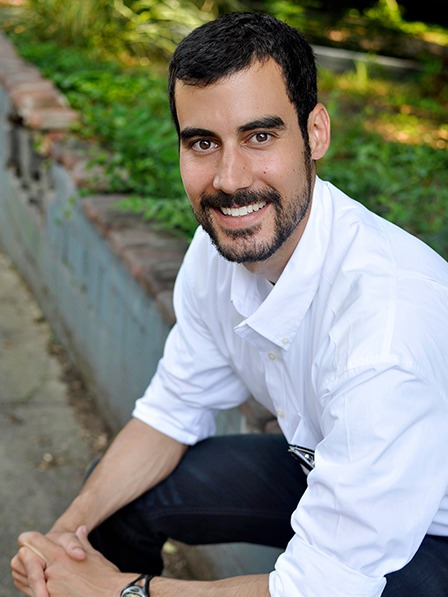Why Civic Leadership for Social Justice?
Opening Essay: Volume 6, Issue 1, eJournal of Public Affairs
Brandon W. Kliewer & Kerry L. Priest
Kansas State University
If a just society requires a strong sense of community, it must find a way to cultivate in citizens a concern for the whole, a dedication to the common good. (Sandel, 2009, p. 263)
The world spins on tensions between aspirations for the common good—justice, equality, health, environmental sustainability—and realities that reinforce systems of injustice, blind individuals to the needs of others, and even produce self-destructive cycles of inaction. The current political and social landscape has heightened collective awareness of these tensions; for example, society as a whole affirms the importance of accepting difference but struggles to realize the potential for inclusion and equity in individual, organizational, and systemic practices. Who is responsible for creating real and lasting social change? Often people turn to leaders in formal positions of power to solve larger problems. However, as Chrislip and O’Malley (2013) suggested, “each of us shares directly in the problems and opportunities of civic life, so we bear some responsibility for making progress” (pp. 19-20). To engage in the activity of leadership is to “accept responsibility to create the conditions that enable others to achieve shared purpose in the face of uncertainty” (Ganz, 2010, p. 527). This shared purpose is a pursuit of the common good—an expanding circle of concern moving beyond self to families, organizations, communities, and society as one recognizes his or her role and responsibility in upholding principles of human dignity, equality, and equity (Chrislip & O’Malley, 2013; Grace, 2011). To do so requires individuals to develop not only knowledge and skills, but also motivation and identity as leaders, scholar-practitioners, and educators committed to advancing the claims of justice.
Scholar-practitioners often frame civic leadership practice for social justice around three core constructs: civic defines the context, social justice the purpose and orientation, and leadership the activity in which one engages. Describing a challenge as civic means that it resides within or impacts social, political, economic, and moral spheres of society (Berger, 2011). Free societies emerge and are maintained in ways that invite leadership activity; they are built on an assumption that values and processes are in place to ensure that governance, decision making, and power are shared across society. When citizens have the capacity to organize and exercise civic leadership, their systems of government become accountable to the people and to constitutional principles. The core assumptions that inform spaces and places of and for civic leadership activity are well documented in social contract theories—individual rights, self-determination, state sovereignty (see Locke, 1690/1980; Rousseau, 2014)—and have expanded to include extra-sovereign spaces and places, including human rights regimes and international law (see Nussbaum, 2003, 2013; Sen, 2011).
Civic leadership centers inherently on creating conditions for groups of people to make progress on social, political, economic, and moral issues in ways that help them to more fully realize the requirements of justice. Justice, as it relates to leadership activity, “is the fair, equitable and impartial distribution of resources, opportunities and benefits of society to all of its members, regardless of position, place or other exclusionary criteria deemed unfair” (Johnson, 2008, p. 303). However, the normative foundations of civic leadership activity assume that key principles of the practice (Rawls, 1971/1999) and/or capabilities (Nussbaum, 2013; Sen, 2011) can and should be embodied by the process of change. The combination of values, principles, capabilities, and processes are essential to the underlying assumptions of a civic leadership practice that moves toward what is required of justice. Consequently, the project of civic leadership cannot be separated from larger questions of rights, responsibilities, and fair access and distribution of resources.
Any attempt to fully define or describe the concept of justice is a lofty one, considering the prolific writing on the topic diffused across many spheres of literature. However, for the purposes of this discussion, John Rawls’ (1971/1999) canonical work, A Theory of Justice, seems to be an appropriate starting point. Rawls provided a comprehensive theory of justice based on the social contract tradition, which is informed by two core assumptions: (1) that human dignity is essential to a full and complete life, and (2) that a just society would require a schema in which positions in society are open to all (i.e., farm laborer, teacher, elected official, business person, etc.). In practice, this means that human dignity is recognized and protected through individual rights, and everyone in a just society would have a fair chance to all available positions in society. Moreover, inequality that emerges from this schema is only considered fair if it benefits the least advantaged of society.
Considered within a justice framework, leadership activity—and the structures produced as a result of it—ought to be conscious of standards of justice. Rawl’s (1971/1999) theory of justice provides such a framework for evaluating structures, systems, and institutions that offer context to leadership. Larger conversations about justice deepen leadership scholars’ and practitioners’ capacity to determine the purposes of leadership. Over time, conversations about what is required of justice have been expanded to account for culture (Sen, 2001), feelings, emotion, and mind-set (Nussbaum, 2003), and moral principles (Dworkin, 1977, 1985). A leadership for social justice paradigm concentrates on creating the institutional and systemic conditions needed for the least advantaged to have a fair chance. Leadership studies scholars, practitioners, and educators (e.g., De Hoogh & Den Hartog, 2008; Noble, 2015a, 2015b; Pless & Makk, 2011) have identified socially responsible and socially just forms of leadership as an essential focal area for the future.
In order for the social contract to engender fair distribution of rights and resources, citizens must exercise civic leadership around issues about which they care. While many conceptualizations of leadership exist, civic leadership draws from literature that frames leadership as an activity that is relational and collaborative, and that is exercised for the purpose of social change (Chrislip & Larson, 1994; Chrislip & O’Malley, 2013; Komives, Wagner, & Associates, 2017; Ospina & Foldy, 2010). Grace (2009) suggested that an essential task of leadership is to attend to inequities by changing systems and structures, policies, and institutions so that they reflect social justice. Brookfield and Preskill (2009) described progress for social justice as a form of activist leadership. The work of such leadership resides in the collective, and it happens through dialogical approaches that challenge dominant ideologies, structures, and processes, and that create interventions that imagine new realities more closely aligned with the requirements of justice (Carroll & Nicholson, 2014; Kliewer & Priest, 2016). Managing the contestation, complexity, and messiness of this type of change is fundamental to civic leadership activity, the exercise of which requires the development of new understandings of self, sources of leadership efficacy, and a shared commitment to action (Dugan, Turman, & Torrez, 2015).
Civic leadership challenges the notion that leaders are only those in roles of formal authority (i.e., holding a political office or position in a community organization). The activity of civic leadership invites communities to generate a source of power that exists only when people organize freely around an issue to which they are committed. Citizens become “accountable for the whole, creating a context of hospitality and collective possibility, acting to bring the gifts of those on the margin to the center” (Block, 2009, p. 63).
This special issue of the eJournal of Public Affairs points to ways that educators, scholars, and practitioners—particularly those in higher education—can accept the responsibility for creating conditions for not only learning about civic leadership for social justice, but also exercising leadership for social justice through teaching, research, and practice.
The issue begins with Tim Shaffer’s “The Politics of Knowledge,” which offers a helpful framework by which to understand dimensions of civic leadership for social justice in higher education systems, with applications across multiple spheres of scholarship and practice. Specifically, the dimensions of institutional structures, approaches to scholarship, professional identity, and pedagogical practice impact the possibility of addressing public problems and pursuing the aims of justice.
The articles that follow represent work across these very dimensions, pointing to practical approaches and theoretical insights that not only take into account barriers to social justice work, but provide tangible examples of advancing social justice claims in the spaces of civic leadership education, development, and scholarship. In “Not Just a Year of Social Justice Education,” Linda Thurston analyzes the role a university can play in promoting social justice education across community-campus contexts. Using a case study methodology, Thurston highlights the historical foundations of social justice work within education and illustrates how Kansas State University’s “Not Just a Year” campus-community collaboration around a common purpose is itself an act of leadership. The article surfaces inherent tensions between aspirations for social justice and institutional constraints, challenging readers to examine assumptions about where knowledge exists and what types of knowledge and understanding are required for social justice learning.
Kathy Guthrie and Amber Hampton describe how a Social Justice Living Learning Community can effectively bridge the gap between curricular and co-curricular learning in ways that support and advance civic and social justice aims. Their article, “So Just Make a Difference: A Unique Approach to Leadership and Social justice Education,” interrogates a model of leadership learning that encourages readers to reconsider assumptions about and re-imagine approaches to teaching, learning, and practice. Their work has direct implications for residential communities on college campuses; however, anyone interested in building learning communities for the purpose of addressing society’s most difficult issues can learn from their examples of intellectual and practical forms of social justice engagement.
Leadership educators and scholar-practitioners often confront a series of barriers that undermine their ability to realize a meaningful justice-orientated practice. In “Self-Stigmatizing Beliefs Suppress Democratic Participation in Low-income Communities at the Community Table of Eau Claire,” Ruth Johnson Cronje and her associates examine personal and structural barriers that undermine a sense of civic agency. Active civic participation is not only an indicator of a healthy democracy, but also important for advancing justice. Cronje et al. use a mixed-methods approach to explore how barriers and self-stigmatizing attitudes prevent people who are working poor from meaningfully engaging in civic and political life. The results of the study indicate that when invited to participate—and when structural barriers to participation are lowered—people from low-income communities begin to develop not only civic identity, but also the agency required to engage in political processes. Developing and expressing a civic identity is necessary for a community to realize more justice relationships.
The special issue includes two books reviews. Lori Kniffin’s review of Publicly Engaged Scholars: Next-Generation Engagement and the Future of Higher Education, edited by Margaret A. Post, Elaine Ward, Nicholas Longo, and John Saltmarsh, will be useful to readers interested in resources that illuminate pathways to engaged scholarship. R. J. Youngblood’s review of When We Fight, We Win!: Twenty-First-Century Social Movements and the Activists That Are Transforming Our World, written by Greg Jobin-Leeds, will be relevant to readers who identify as social justice and leadership educators and activists interested in campaigns of change with justice aims.
In the video feature “Drag Queens of Central Kansas,” Jakki Forester shares results of an intensive four-year research study, describing how members of the drag community use their positionality to create conditions for advocating for social justice. Forester invites readers to interrogate and broaden the preconceived notions of who can engage civically and what constitutes civic engagement. Her work highlights how creating spaces and places that support gender fluidity can be understood through the lens of leadership activity, and advocates for the use of decolonizing methods of inquiry to inform and advance social justice research and practice.
John Theis and Jose Vela’s video feature, “Deliberation: An Introduction,” illustrates an intentional process for convening community through dialogue and deliberation around tough social issues. The project of determining the requirements of justice is inherently linked to politics and subject to multiple interpretations and contestation. Theis and Vela’s contribution highlights the significant role civic leadership activity has in managing associated contestation through forms of deliberative civic engagement.
Civic leadership represents the nexus of many streams of scholarship and practice. The pursuit of social justice is at the heart of civic leadership activity, and making progress on the world’s toughest challenges cannot be separated from recognizing the inherent dignity of all people, creating opportunities for human flourishing, and ensuring equitable access and distribution of resources. Indeed, justice is not a partisan concern. Unfortunately, claims of justice and corresponding discussions are often framed in ways that privilege certain ideological leanings or world views. As we have described, questions of justice are integral to the social, political, economic, and moral landscape of our society. In order to contribute to realizing a more just and sustainable world, those who study, teach, and practice leadership must connect theoretical understanding of what is required by justice with practical expressions of change, manage contestation associated with defining what is required of justice, and attend to the development of civic leadership identity, efficacy, and motivation. We hope the articles within this special issue offer insights that help readers reflect on their own roles in making progress toward justice.
References
Berger, B. (2011). Attention deficit democracy: The paradox of civic engagement. Princeton, NJ: Princeton University Press.
Block, P. (2009). Community: The structure of belonging. San Francisco, CA: Barrett-Koehler.
Carroll, B., & Nicholson, H. (2014). Resistance and struggle in leadership development. Human Relations, 67(11), 1413-1436. doi:10.1177/0018726714521644
Chrislip, D. D., & Larson, C. E. (1994). Collaborative leadership: How citizens and civic leaders can make a difference. San Francisco, CA: Jossey-Bass.
Chrislip, D. D., & O’Malley, E. (2013). For the common good: Redefining civic leadership. Wichita, KS: KLC Press.
De Hoogh, A. H. B., & Den Hartog, D. N. (2008). Ethical and despotic leadership, relationships with leader’s social responsibility, top management team effectiveness and subordinates’ optimism: A multi-method study. Leadership Quarterly, 19(3), 297-311. doi:http://dx.doi.org/10.1016/j.leaqua.2008.03.002
Dugan, J. P., Turman, N. T., & Torrez, M. A. (2015). Beyond individual leader development: Cultivating collective capacities. New Directions for Student Leadership, 148, 5-15. doi:10.1002/yd.20149
Dworkin, R. (1977). Taking rights seriously. Cambridge, MA: Harvard University Press.
Dworkin, R. (1985). A matter of principle. Cambridge, MA: Harvard University Press.
Ganz, M. (2010). Leading change: Leadership, organization, and social movements. In N. Nohria & R. Khurana (Eds.), Handbook of leadership theory and practice (pp. 527-561). Boston, MA: Harvard Business Press.
Grace, B. (2011). Sharing the rock: Shaping our future through leadership for the common good. Bellevue, WA: Common Good Works.
Johnson, B. L. (2008). Exploring multiple meanings and pursuits for social justice: A reflection on modern, imperative, and postmodern possibilities. Teacher Development, 12(4), 301-318. doi:0.1080/13664530802579868
Kliewer, B. W., & Priest, K. L. (2016). Creating the conditions for political engagement: A narrative approach for community-engaged scholarship and civic leadership development. In K. Soria & T. Mitchell (Eds.), Civic engagement and community service at research universities: Engaging undergraduates for social justice, social change and responsible citizenship (pp. 47-62). London: Palgrave Macmillan UK.
Komives, S., Wagner, W., & Associates. (2017). Leadership for a better world: Understanding the social change model of leadership development. San Francisco, CA: Jossey-Bass.
Locke, J. (1980). Second treatise of government (C. B. Macpherson, Ed.). New York: Hackett Publishing Company. (Original work published 1690).
Noble, D. J. (2015a). Pratfalls, pitfalls, and passion: The melding of leadership and social justice. Creighton Journal of Interdisciplinary Leadership, 1(2), 107-119. Retrieved from https://ojs.creighton.edu/index.php/CJIL/article/view/15/11
Noble, D. J. (2015b). Leading for tomorrow in a world yearning for social justice. In M. Sowcik, A. Andenoro, M. McNutt, & S. Murphy (Eds.), Leadership 2050: Critical challenges, key contexts and emerging trends (pp. 43-58). Bingley, UK: Emerald Group Publishing.
Ospina, S., & Foldy, E. (2010). Building bridges from the margins: The work of leadership in social change organizations. The Leadership Quarterly, 21(2), 292-307. doi:10.1016/j.leaqua.2010.01.008
Pless, N. M., & Maak, T. (2011). Responsible leadership: Pathways to the future. Journal of Business Ethics, 98, 3-13. doi:10.1007/s10551-011-1114-4
Preskill S., & Brookfield, S. D. (2009). Learning as a way of leading: Lessons from the struggle for social justice. San Francisco, CA: Jossey-Bass.
Rawls, J. (1999). A theory of justice (rev. ed.). New York: Belkap. (Originally published in 1971).
Rousseau, J. (2014). On the social contract. In J. T. Scott (Ed.), The major political writings of Jean-Jacques Rousseau: The two “Discourses” and the “Social Contract” (pp. 153-272). Chicago: University of Chicago Press.
Nussbaum, M. C. (2003). Upheavals of thought: The intelligence of emotions. Cambridge, UK: Cambridge University Press.
Nussbaum, M. C. (2013). Creating capabilities: The human development approach. New York: Belkap Press.
Sandel, M. J. (2009). Justice: What’s the right thing to do? New York: Farrar, Straus and Giroux.
Sen, A. (2001). Development as freedom (2nd ed.). New York: Oxford University Press.
Sen, A. (2011). The idea of justice. New York: Belkap Press.
Author Biographies
 Dr. Brandon W. Kliewer is an assistant professor of civic leadership in the Mary Lynn and Warren Staley School of Leadership Studies at Kansas State University. Brandon specializes in deliberative civic engagement, democratic theory, and approaches to community-engaged scholarship that focus on collaboration and partnership. He is currently working on a series of manuscripts that report the results of civic leadership development programs, deliberative civic engagement forums, and community engagement theories and practices. His scholarship often involves undergraduate and graduate students, community members, and working professionals in ways that create the conditions for mobilizing new knowledge in order to make progress on tough challenges. Brandon holds a PhD in political science from the University of Georgia and a master’s degree in political science from Virginia Polytechnic Institute and State University. He can be reached at bkliewer@ksu.edu.
Dr. Brandon W. Kliewer is an assistant professor of civic leadership in the Mary Lynn and Warren Staley School of Leadership Studies at Kansas State University. Brandon specializes in deliberative civic engagement, democratic theory, and approaches to community-engaged scholarship that focus on collaboration and partnership. He is currently working on a series of manuscripts that report the results of civic leadership development programs, deliberative civic engagement forums, and community engagement theories and practices. His scholarship often involves undergraduate and graduate students, community members, and working professionals in ways that create the conditions for mobilizing new knowledge in order to make progress on tough challenges. Brandon holds a PhD in political science from the University of Georgia and a master’s degree in political science from Virginia Polytechnic Institute and State University. He can be reached at bkliewer@ksu.edu.
Dr. Kerry L. Priest is an assistant professor in the Mary Lynn and Warren Staley School of Leadership Studies at Kansas State University. She teaches undergraduate and graduate courses emphasizing civic leadership development, socially responsible leadership, community engagement, and organizing. Her research agenda explores the intersections of leadership development and engaged teaching and learning in higher education, with a particular interest in questions that emerge from interpretative, collaborative frameworks for social change. Kerry’s scholarship has addressed questions around leadership identity, leadership pedagogies and high-impact educational practices, and critical perspectives on leadership education. Kerry earned her PhD from Virginia Polytechnic Institute and State University and her master’s degree from the University of Georgia. She can be reached at kerryp@ksu.edu.


